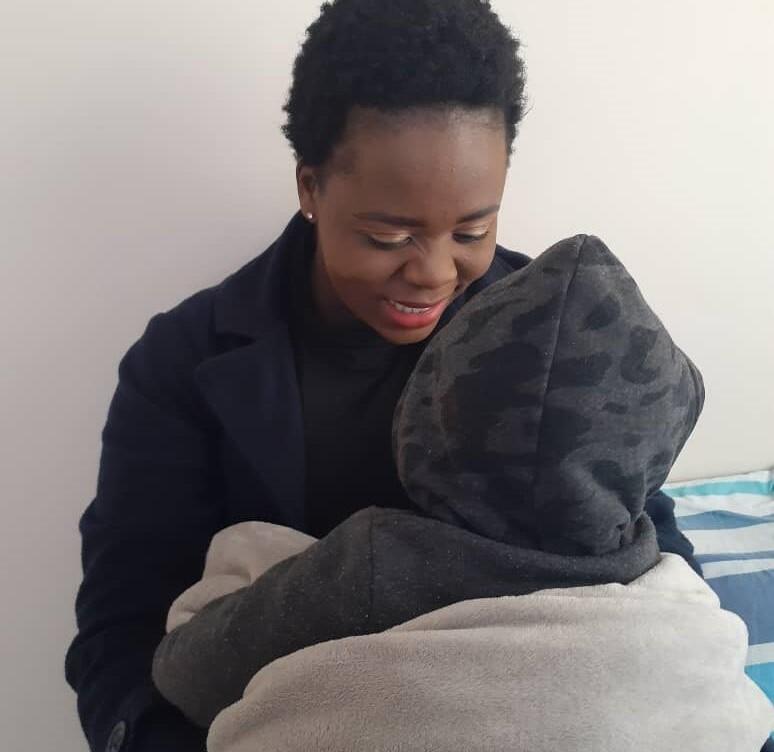GABORONE, Botswana—The experience of pregnancy and childbirth comes with a mixture of anticipation, excitement and anxiety. For first time moms, this experience also comes with fear. Fear of the unknown; of what it will be like to give birth and ultimately, be a parent.
For Karabo Bosena, a first time mom, COVID-19 added another layer of stress to her birthing experience. When her labour pains started she felt a sharp sense of anxiety and helplessness overwhelming her. Her anxiety was partly due to giving birth for the first time, but mostly because she was going to do it all alone. Karabo and her partner had made plans for him to be present during delivery to give her the support that she needed. But as things turned out, her partner was not allowed to accompany her as per the COVID-19 protocols.
“My partner tried reassuring and calming me down on our way to the hospital. He advised me to relax and just picture holding our baby in my hands every time I get nervous,”
Arriving at the hospital, she put on a brave face as she walked through the corridors. The hospital was overcrowded as it is the biggest one in the area. Her panic intensified.
“My heart raced as I walked through the halls. I was now more nervous and concerned about my baby or myself contracting COVID-19 and the crowd at the hospital didn't help the situation, because in my head the larger the crowd meant the higher the chances of contracting the virus.”
Pregnancy can be a nerve-wracking experience for many women, and the COVID-19 pandemic has magnified this, as giving birth during the pandemic comes with a lot of uncertainty and challenges such as isolation from loved ones.
Supportives midwives!
Women giving birth during COVID-19 are now more reliant on midwives than ever as most COVID-19 protocols prohibit visitations or birth accompaniment. Fortunately for Karabo, she had two very supportive midwives.
“My midwives really did everything they could to make sure I had a positive and safe childbirth experience. They were very nice and supportive given the situation and their composure and professionalism comforted me,”
Karabo says the only thing that reminded her that she was not giving birth under normal circumstances was the Personal Protective Equipment (PPEs) the midwives wore throughout.
After hours of pushing, she gave birth to a healthy baby boy!
“I couldn't help but be grateful to the midwives working tirelessly to ensure women like me give birth safely during these daunting times,”
Karabo is back home, with both her and the baby recovering very well. She continues to follow the doctor’s orders on postpartum care ,as well as adherence to the COVID-19 protocols. Her son is five months and family and friends have not met the boy yet as they would have done before COVID19.
So what advice would she give to mothers due to give birth during a pandemic?
"The only advice I can give to pregnant ladies right now is to remain calm and trust that everything will turn out well. I also urge them to follow all the COVID-19 protocols to protect themselves and their babies,” she said.
UNFPA Botswana has been supporting the Ministry of Health and Wellness (MOHW) to ensure the continuity of sexual and reproductive health services and to mitigate against any disruptions to access to essential sexual and reproductive health and rights, and maternal health services for adolescents, youth and pregnant women. The ministry has therefore prioritised maternal health (ANC, PNC, delivery, Family planning), child welfare and ART as minimum essential packages of services that should not be interrupted during lockdowns. UNFPA also supported the ministry to develop facility level guidelines on the management of pregnant women in the face of COVID-19.
During pandemics, when health and social systems are struggling to cope, SRH services are often sidelined which often leads to increased maternal mortality and morbidity.
-Priscilla Rabasimane


